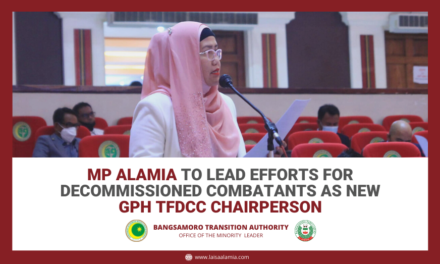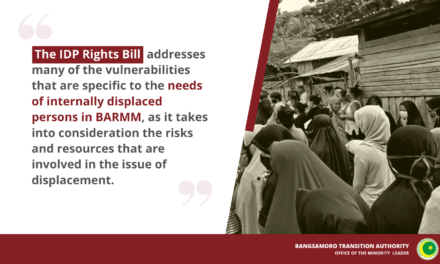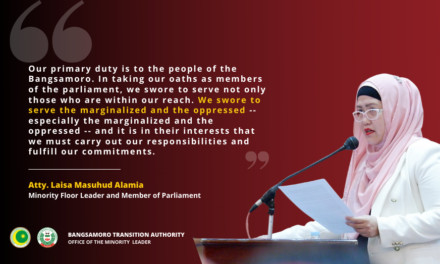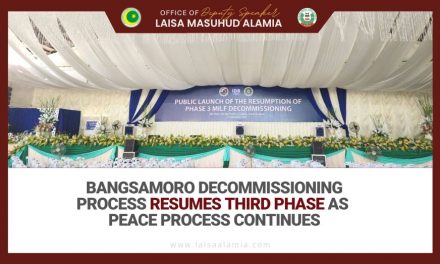During the interpellations for the draft Civil Service Code in the Bangsamoro Autonomous Region in Muslim Mindanao, Minority Floor Leader Atty. Laisa Alamia pointed out the need to reconcile the presence of provisions pertaining to “second level positions with managerial and executive functions” and the absence of provisions that require career executive service (CES) eligibility for third-level positions in the BARMM.
“There is no problem in creating something that is already recognized in the national level,” MP Alamia explains, “but I also believe that creating these positions in the plantilla does not preclude the existence of third-level positions in the BARMM bureaucracy. There is no contradiction between creating second level positions with managerial functions and retaining third level positions that require CES eligibility.”
“We would want for more Moros to enter the civil service and take part in public service, and we can reconcile it with the principle of recognizing the efforts of Moro professionals who are qualified and have achieved third-level eligibility,” she said.
Currently, the draft Civil Service Code supposedly reflects “that there are no third-level positions,” at least in the BARMM, and is a “fact on the ground” according to the main proponent of the bill. However, the same proponent also conceded that third-level positions such as the schools divisions superintendent and assistant schools division superintendent do exist in the region, but their appointments are only recognized in the current draft of the code as an “exemption.”
The discussion is anchored on the phrasing of Article 113 in the current draft of the Civil Service Code, which refers to “third level eligibility.” It says that “the requirement for career executive service eligibility shall not apply to third level positions in the BARMM, unless otherwise provided by law or existing jurisprudence.”
It was eventually clarified that there were certain provisions that were “inadvertently retained,” and this includes the current version of Article 113. When the matter of third level positions was introduced in the committee hearing, “there was a resolution of the committee backtracking and saying that there should not be any third level eligibility” in the BARMM, and that “third level positions” as indicated in the draft regional Civil Service Code should instead be phrased as “second level positions with managerial and executive functions.”
MP Alamia then asked if existing third level positions such as those held by superintendents, will be downgraded to second level positions, to which the answer was no. Said positions will remain, however their existence will register in the current draft of the BARMM Civil Service Code as an exemption, instead of being recognized as third level positions that actually exist in the region.
The discussion is crucial, especially given the position of a Bangsamoro Director General which will have a different appointing authority compared to director generals in other parts of the country — all of whom are appointed by the president. When MP Alamia asked about the difference in qualifications, the proponent said that they are “still looking into the difference of qualifications in terms of education and training.”
MP Alamia was also told that there would be a different set of qualification standards, including educational level and years of experience, for the Bangsamoro Director General, along with a different salary grade. She also asked if this would translate to a difference in the quality of service, and the answer was that the proponent “cannot say exactly,” while also acknowledging that “there would be higher qualification standards for the nationally-held position of director general compared to the Bangsamoro Director General.”
Later on, during the discussion regarding the need to reconcile provisions pertaining to “second level positions with managerial and executive functions” and the presumed absence of third-level positions in the BARMM, the proponent conceded that “if we had more third-level positions in the regional government, it would be beneficial to the quality of bureaucracy of the BARMM.”








